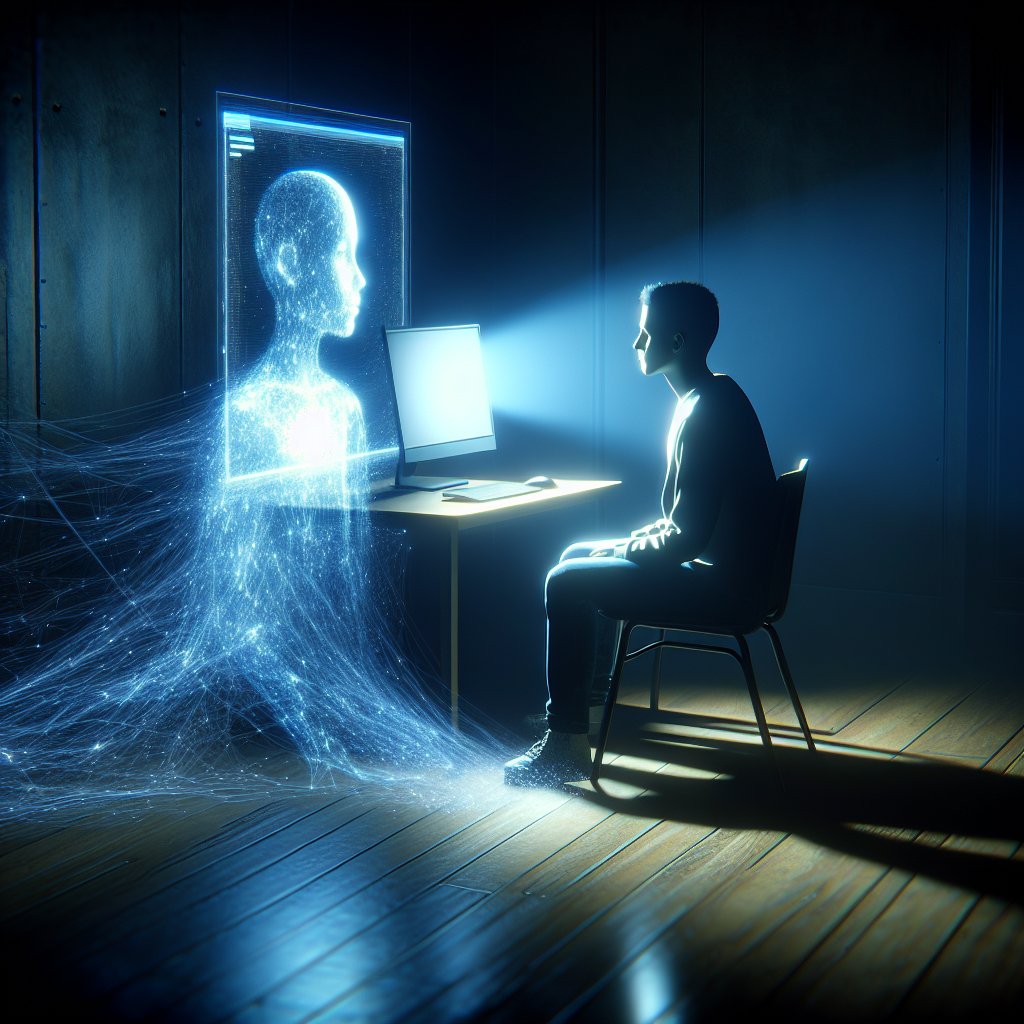ChatGPT and the Loneliness Epidemic: Are AI Companions a Friend or a Foe?
Hey there, fellow curious minds! Today, we're diving into a topic that might just hit close to home for many: loneliness. Yep, that feeling you get even when you're surrounded by people. It's like standing in a room full of chatter, but all you hear is emptiness. And while we're not here to talk about The Beatles' classic "Eleanor Rigby," we are exploring an intriguing question: What if our digital age could offer a solution through tools like ChatGPT? But, as you'll see, it's not all sunshine and rainbows.
The Loneliness Conundrum
Loneliness, dear readers, is a global crisis. It's the invisible epidemic that creeps into our lives, affecting our mental and physical health. Imagine that feeling of disconnection leading to serious issues like depression or even heart disease. Ouch! Researchers have found that loneliness affects a staggering number of people worldwide and is on the rise.
So, where do AI companions like ChatGPT come in? Some say they could help mitigate loneliness. The idea is that if you're lonely, a nice chat with an AI who can follow your lead and remember your quirks might lift your spirits. Sounds promising, right? But hang on a second, let's not put all our eggs in the AI basket just yet.
When ChatGPT Becomes a Listening Ear
Our research team took a magnifying glass to user interactions with ChatGPT—outside its marketed use as a task-oriented assistant. What they found was fascinating: 8% of interactions were classified as "lonely." Many users seemed to see ChatGPT as a friendly ear, a confidant they'd turn to when they needed advice or validation. And, for the most part, these conversations were engaging—at least more so than talking to a wall.
These "lonely dialogues" were mostly amicable. Users would pour their hearts out about their struggles and ChatGPT would offer its version of a sympathetic nod. But—and it's a big BUT—sometimes people turned to ChatGPT for help with heavier issues, like dealing with trauma or negative thoughts. And this is where things got sticky.
Losing the Plot in Critical Scenarios
Picture this: someone reaches out to ChatGPT in distress, hinting at feelings of hopelessness. ChatGPT, being a computer program, sticks to its scripts—suggesting therapy or emergency hotlines, but often failing to grasp the gravity of these critical moments. Oh dear!
Perhaps most concerning was the rise in toxic content—conversations that took a darker, harmful turn. The researchers found a startling trend: women and minors were more likely to be targeted by such content, raising serious ethical and safety questions.
Finding the Balance: Risks vs. Benefits
AI companions like ChatGPT offer an intriguing mix of benefits and risks. On one hand, they're accessible, friendly, and ready for a chat 24/7. They could be the non-judgmental ear we sometimes need. But, on the flip side, they can be unreliable, especially when the conversation goes from small talk to serious talk. So, the question arises: are we treating AI tech like a therapist when it clearly isn't one?
Where Do We Go from Here?
It's clear that the deployment of AI chatbots comes with a heavy responsibility. They're marketed as productivity tools, yet people use them as emotional crutches, opening Pandora's box of ethical and legal challenges. This calls for regulatory frameworks to ensure safe AI tool deployment. But the solution isn't just in stricter regulations; it requires a societal shift—starting by addressing loneliness head-on, removing its stigma, and fostering connections.
Key Takeaways:
- Loneliness is a global issue: It's more than just a feeling; it's linked to severe physical and mental health problems.
- AI as a double-edged sword: Tools like ChatGPT can provide empathy and act as a companion but are not substitutes for professional help.
- Critical moments require human touch: In cases of trauma or distress, AI falls short compared to a trained professional.
- Increased toxic interactions: There's a risky rise in harmful content, especially targeting women and minors, which AI struggles to mitigate.
- Need for regulatory work: Safe use of AI involves ethical standards and legal frameworks, especially in roles they weren't designed for.
In conclusion, while AI companions might bring comfort for some, it's essential not to forget the importance of human interaction and professional support. Let's take this as a call to action—to not just rely on digital companions but to foster genuine connections in our lives. After all, nothing beats a heart-to-heart with a fellow human being. Stay connected and keep exploring, friends!

